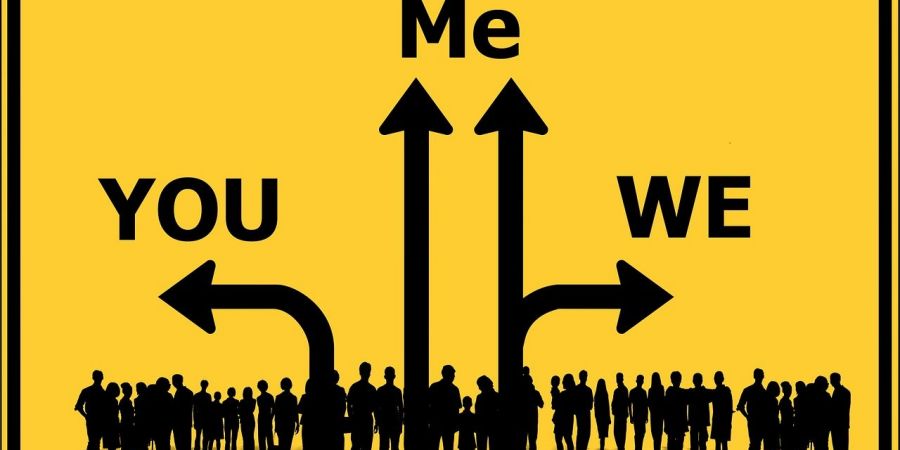

You may feel uncomfortable with your future. What a reserved conclusion for that. And what will happen to you after death if you happen to have a selfish character? On the other hand people may think that independence is a good thing. They ask, what is wrong with self-love? After all, don’t we have to look at number one in order to survive and thrive? Yes, I would say it is good to make our way and not be a burden to society. Self-care does not help anyone. So, if self-care is good, what does it really mean for a selfish life? I would suggest that really selfish people are willing to exploit others for the sake of their own entertainment. In their dealings they do it for themselves even though this means thoughtlessness, dishonesty, and restraint. We may wonder about the destiny of those who practice selfishness.
On the off chance that we are truly going to get what we really ask for what are the adverse consequences of this sort of karma?
Can any of us help with a selfish character? We behave in a certain way from a combination of reasons. Opportunity and choice come into play. So, you may ask, how can we respond in any one way we live? Don't we have all kinds of desires and goals? Indeed, it is commonly believed today that we are all born with a combination of good and bad tendencies. Having the natural traits of kindness and selfishness, generosity and greed, good over evil.
Also, it is thought that there are many things beyond our control that affect us. Social scientists can point to a link between mental illness and traumatic experience. And between crime and poverty. Since we need social acceptance from our young peers, we may be inclined to go along with their social norms, which can be detrimental to others. Are external factors the only ones responsible for the way we live our lives? This is how I see it. We all start in the world as children are influenced, yes, by all sorts of things. Genetic makeup, family upbringing, social norms, and any difficulties may all affect our behavior. It is therefore true that we have certain inherited tendencies and personal experiences that affect us.
As science has shown, 'nature and growth' both play a vital role in human development. But more than that, there is a spiritual perspective. As we get older, I would say that each of us becomes our own person. No matter what our circumstances, we grow as individuals with our concerns and priorities. Gradually, we choose our values and desires. I try to argue about who we all become based on our response to the world around us. How we react to a challenging experience. Are we doing well or poorly with set-backs? I would say, the bottom line is, we have a choice. Are we responsible for our conduct? Similarly, the justice system assumes that we are accountable to the courts for obedience or non-compliance with the law. We are responsible for our conduct because we choose to follow or act contrary to social norms. This view is also in line with existing philosophy. The cornerstone of this tradition is to embrace the reality of inner freedom. It may not always be possible to do what we want, such as when we work hard, face dictatorial pressure, or become disabled, but we are still free to think and have goals as we wish. We may not be comfortable with the social problems of what we are outside doing and saying. But are we not using our inner freedom to think and aim as we wish? And does this happen every day, hour after hour, minute by minute? If so, over time, the pattern will emerge slightly from the way a person reacts to situations.
A healthy attitude is developing. And this builds our character. I would say it could be selfish or not - but that is our choice. We end up being what we are and getting what we want, according to what we really want. It is called 'We are what we eat'. Our bodies become healthy or unhealthy depending on the food and drink we often choose to consume. Likewise, do our minds become spiritually healthy or unhealthy according to our common motives and thoughts? The thinking habits we build? According to Swedenborg, throughout life on earth, one gradually builds one's inner self. Each person behaves in a certain way. By doing so, their happiness in life and their 'love of dominion' are gradually built up. For example, on the one hand, I may be busy getting a position in the community or, on the other hand, focusing too much on useful roles. As a business person, my main emphasis would be on making a mint of money or, on the other hand, more concerned about fair dealing with suppliers or employees. As the normal pattern grows in my life, then I take what I most desire. I associate myself with things, fears, hopes, and values etc., and make them my own with positive thoughts. Isn't it just a selfish idea to be divided? You may wonder, 'If we choose our attitudes, who will determine if we are selfish? You can’t behave selfishly because of naivety. In answer I would say yes, a selfish act might arise because we do not fully understand the consequences of our actions. How it hurts someone else. Perhaps our friends have unwittingly influenced us to commit immorality or to commit some minor crime. This may not be the pattern set if we respond correctly when light is applied to the story. If we accept the mistakes of our ways and the bad consequences for others. In other words, you can see the concept of selfishness as divisive thinking. But I don't think this is a good reason not to use the name. Because I suggest that there are categories of selfishness. How a person behaves depends on the distance a person goes with what he or she wants. Take selfish pursuits only in a small way.




